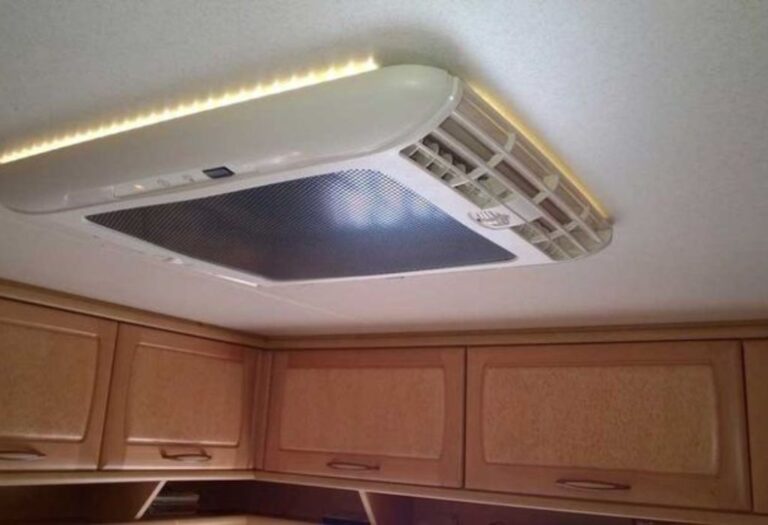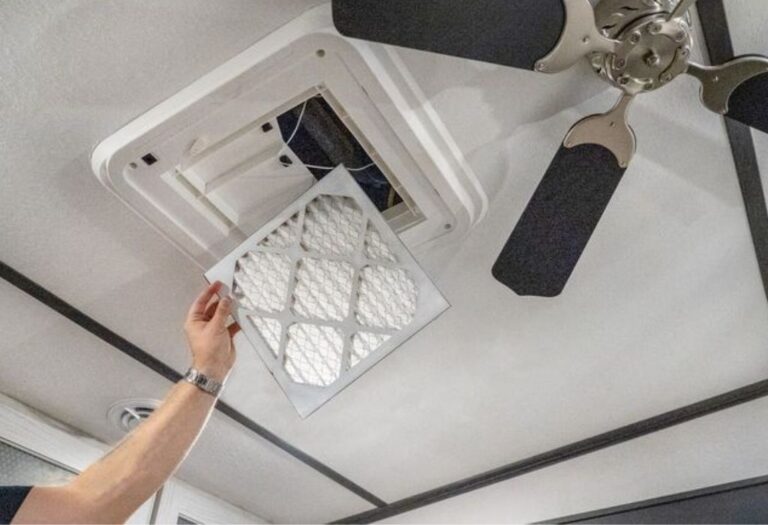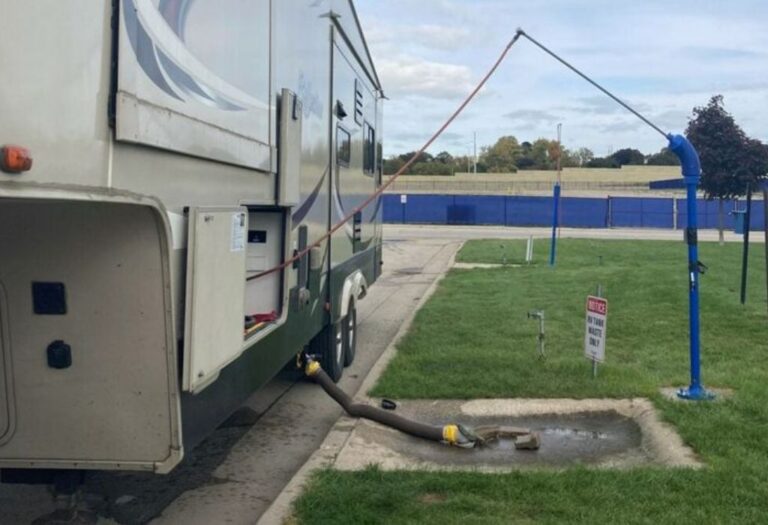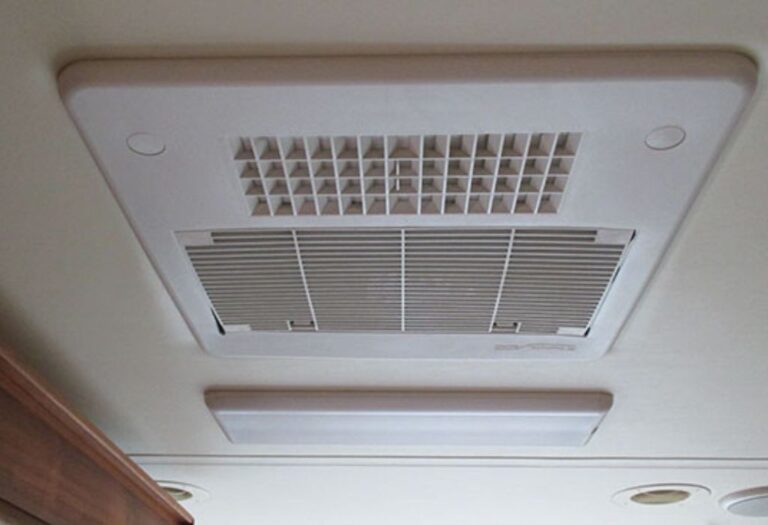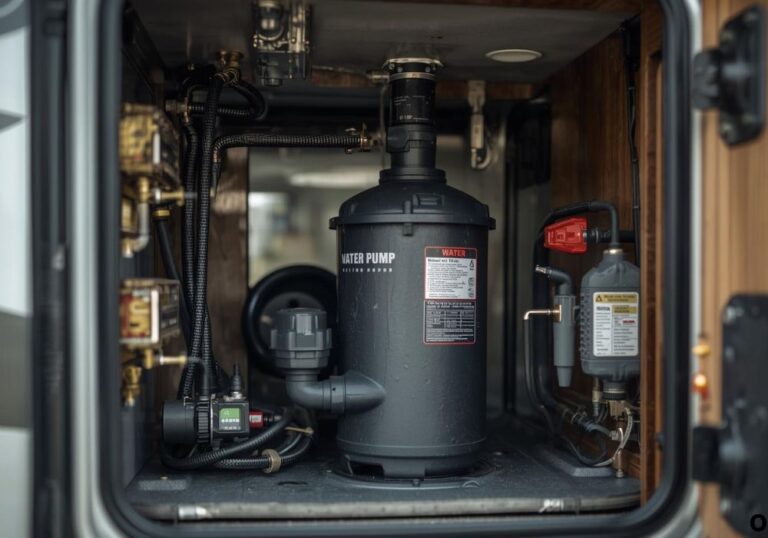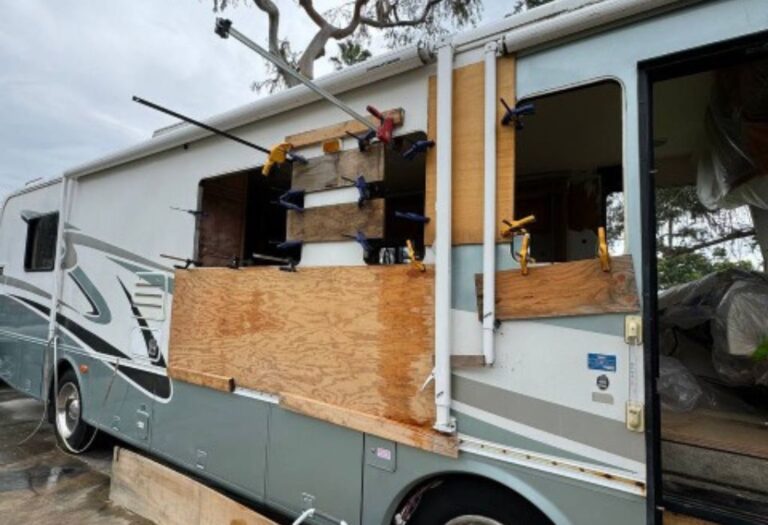Can I Charge My RV Battery With My Truck? Complete 2025 Guide
Every RV owner knows the sinking feeling of discovering that their house battery has drained overnight, leaving lights, refrigerators, or fans completely powerless just when they are needed most.
The first thought many people have is whether the truck that tows the RV can be used to recharge the battery and provide enough energy to keep things running.
This is a common question because many truck owners assume the alternator can supply power directly to the RV, but the reality is a little more complex than it seems.
While it is technically possible to charge an RV battery with a truck, the speed, efficiency, and safety of the process depend on the setup and equipment being used.
Truck alternators are primarily designed to charge starter batteries, which behave differently from deep-cycle RV batteries that are built for slow, steady discharges and recharges.
According to RVtravel.com, more than 70% of roadside RV issues are caused by dead or weak batteries, making proper charging strategies critical for reliable camping.
Learning how to safely use your truck to charge an RV battery can extend trips, prevent costly breakdowns, and reduce dependence on generators or shore power.
This guide explores how truck charging works, its limitations, safer alternatives, and the best practices to protect your RV battery system.
Understanding RV and Truck Battery Systems
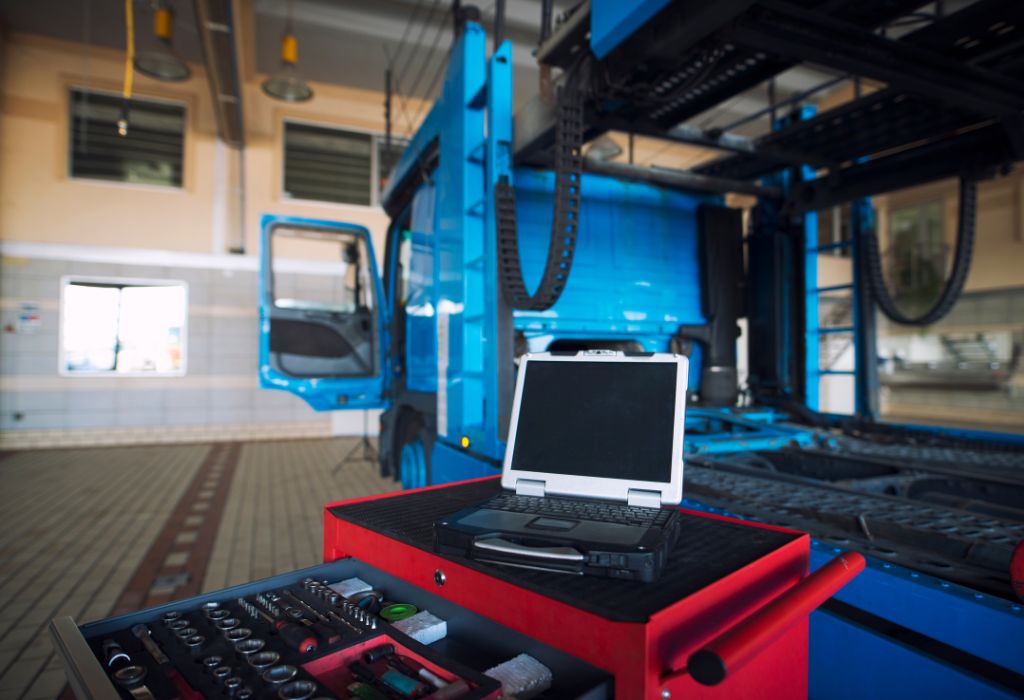
RV systems typically include two different types of batteries: a chassis battery that powers the engine and a house battery that supports the living space. The house battery is usually deep cycle, designed to deliver steady energy over time.
Truck alternators generate electricity as the engine runs, and this electricity can be routed to charge an RV battery if the systems are properly connected. However, voltage drop and cable limitations can reduce charging effectiveness.
A 7-pin trailer connector is the most common way trucks are linked to RV batteries. It provides a charging line, though the amperage may not be enough for fast charging.
Understanding how these systems differ ensures you know what your truck can realistically provide to an RV battery.
What is an RV house battery?
It is the deep-cycle battery that powers appliances and lights.
Do trucks have enough power to charge RV batteries?
Yes, but usually at a slower rate.
What is a chassis battery?
It is the starter battery for the engine.
Do trucks and RVs use the same type of battery?
No, truck batteries are starting type, RV house batteries are deep cycle.
Why is wiring important?
Because voltage loss reduces charging efficiency.
Can I Charge My RV Battery Directly With My Truck?
Yes, trucks can charge RV batteries through the alternator, especially when using a 7-pin connector or similar setup. The alternator generates current while driving, sending it through the trailer wiring harness to the RV battery.
This works best while the truck is running, since alternators only provide power when the engine is engaged. It is a practical way to keep the battery topped up during travel days.
However, the charge is often weak because of small gauge wiring and long cable runs. The result is more of a maintenance charge than a full recharge.
If the RV battery is deeply drained, alternator charging alone will not be enough to restore it fully.
Can I charge my RV battery with my truck?
Yes, through the alternator connection.
Does it work while driving?
Yes, charging occurs while the engine is running.
Do all trucks have a 7-pin connector?
Most modern trucks do, but older ones may not.
Will it fully charge my RV battery?
No, it usually only provides a partial charge.
Is charging speed fast?
No, it is relatively slow compared to other methods.
Limitations of Charging With a Truck Alternator
Alternators are designed to maintain starter batteries, not recharge deep-cycle RV batteries from empty. This means they often fail to bring RV batteries back to 100%.
Voltage drop through long, thin trailer wiring further reduces efficiency. By the time the current reaches the RV, much of the potential is lost.
Running RV appliances while charging also slows down the process. Lights, fans, or refrigerators will consume some of the current before it reaches the battery.
These limitations mean alternator charging should be seen as supplemental power rather than a primary charging solution.
Does a truck alternator fully charge RV batteries?
No, it usually provides only partial charging.
Why is charging slow?
Because of limited amperage and cable resistance.
Does cable length affect charging?
Yes, longer cables cause voltage loss.
Can I run appliances while charging?
Yes, but it slows down the charge.
Is this method reliable long-term?
No, it should be considered a backup option.
Using a DC-to-DC Charger for Better Results
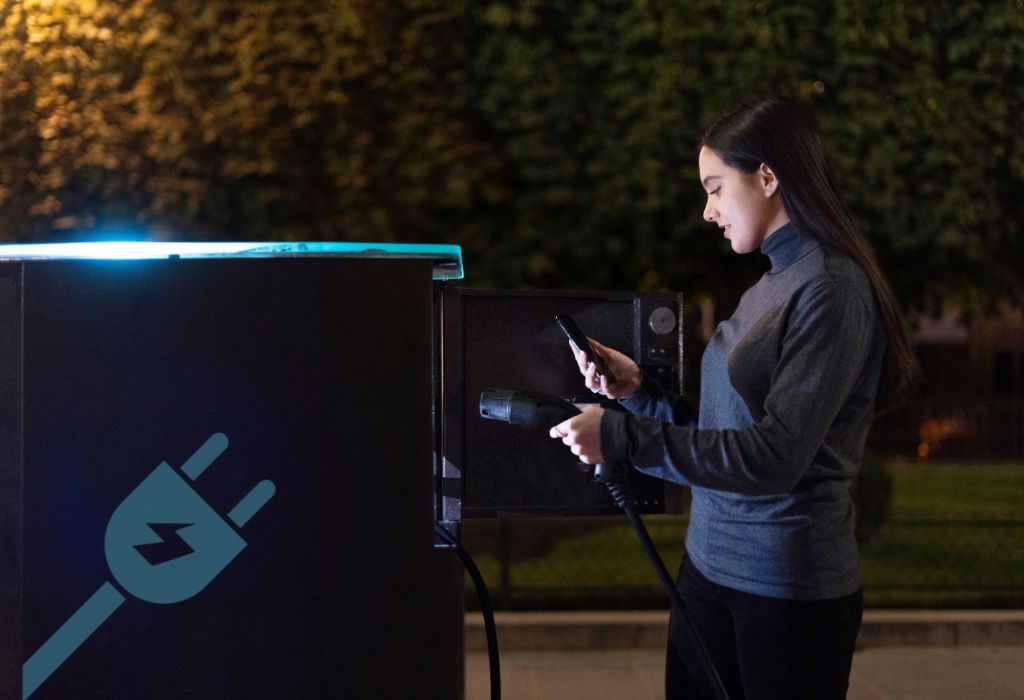
A DC-to-DC charger solves many of the problems of alternator charging. It regulates voltage and current, ensuring the RV battery receives the right type of charge.
These chargers also prevent overcharging or undercharging, which protects battery lifespan. Deep-cycle batteries perform best with controlled charging, which DC-to-DC devices provide.
For lithium RV batteries, a DC-to-DC charger is essential. Lithium batteries require specific charging profiles that alternators cannot provide on their own.
Installing a DC-to-DC charger makes charging faster, safer, and more efficient, especially for long trips.
What is a DC-to-DC charger?
A device that regulates alternator power for RV batteries.
Why use it instead of direct alternator charging?
Because it prevents damage and improves efficiency.
Does it protect the battery?
Yes, by delivering the correct charging profile.
Is it required for lithium batteries?
Yes, lithium batteries must have regulated charging.
Does it improve charging speed?
Yes, significantly compared to direct wiring.
Role of Battery Isolators and Wiring Upgrades
Battery isolators are another important part of truck-to-RV charging systems. They prevent the RV battery from draining the truck battery when the engine is off.
This ensures that the truck always has enough power to start, even if the RV battery is low. Without an isolator, both systems could drain each other.
Upgrading to heavier-gauge wiring reduces voltage drop. This allows more current to reach the RV battery efficiently.
Professional installation is recommended for safety and reliability, especially if handling lithium or large-capacity batteries.
What is a battery isolator?
A device that separates truck and RV batteries.
Do I need one for charging RV batteries?
Yes, to protect the truck’s starter battery.
Does it protect my truck battery?
Yes, it prevents accidental draining.
Can wiring upgrades help?
Yes, thicker cables reduce power loss.
Should I install it myself?
Only if experienced; otherwise, hire a pro.
Charging While Driving vs Idling
Charging RV batteries works best while driving because alternators perform at higher output when the engine is under load. This means faster charging compared to idling.
Idling provides some charging but is much less efficient. It also consumes unnecessary fuel and may strain the truck engine over long periods.
Long drives are ideal for topping off RV batteries. Many RVers rely on travel days to recharge batteries before setting up camp.
Idling should only be used as a temporary solution in emergencies when no other charging method is available.
Can I charge while idling?
Yes, but it is inefficient and wasteful.
Does driving charge faster?
Yes, alternators work best under load.
Is idling bad for the truck?
Yes, long idling can cause engine wear.
How long does charging take?
Several hours depending on battery size.
Does speed matter?
Not directly, but alternator load does.
Alternatives to Truck Charging
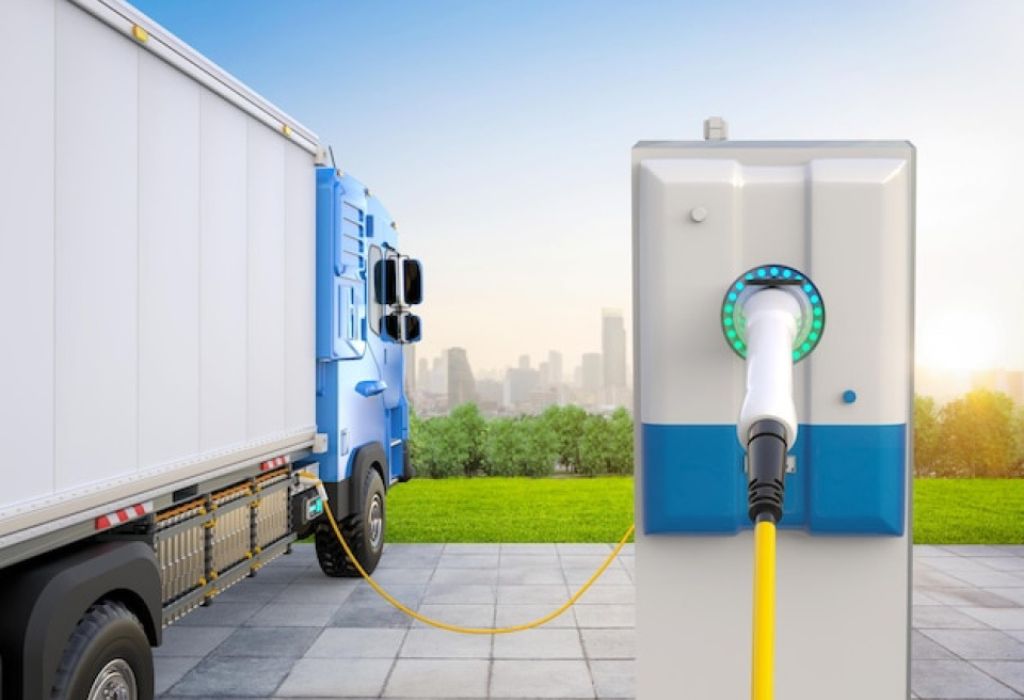
Shore power is the most reliable way to fully recharge RV batteries. Most campgrounds offer hookups that provide steady power through an RV converter.
Solar panels are an increasingly popular off-grid solution. They provide clean, renewable charging throughout the day.
Portable generators are another option, though they require fuel and create noise. Many RVers use them as backup rather than primary sources.
Smart chargers are excellent for storage periods. They maintain batteries at safe levels without overcharging.
What is the best alternative?
Shore power or solar for full charging.
Are solar panels reliable?
Yes, especially in sunny regions.
Do generators charge faster?
Yes, but they require fuel.
Is shore power best for full charging?
Yes, it restores batteries completely.
Can smart chargers extend battery life?
Yes, by maintaining proper voltage.
Best Practices for Charging RV Batteries With a Truck
Always monitor battery voltage with a multimeter. This ensures that charging is happening and prevents over-discharge.
Install a DC-to-DC charger for efficient and safe charging. It protects both the truck and the RV battery.
Use a battery isolator to keep the truck’s starter battery safe. This ensures you won’t be stranded with a dead vehicle.
Avoid relying solely on alternator charging for long-term battery health. Combine methods with solar or shore power for the best results.
How do I monitor charging?
By using a voltmeter or battery monitor.
Do I need extra equipment?
Yes, a DC-to-DC charger and isolator help.
Can I rely on truck charging alone?
No, it is too slow for full charging.
How often should I charge RV batteries?
Whenever voltage drops below 12.2 volts.
Do lithium batteries need special care?
Yes, they require regulated charging.
Conclusion
Yes, you can charge your RV battery with your truck, but the process is limited by alternator design, wiring, and battery type. It works best for maintaining or topping off batteries while driving.
Direct alternator charging is slow and inefficient, especially for deeply discharged deep-cycle or lithium batteries. DC-to-DC chargers and isolators make the system safer and more reliable.
Alternatives like solar panels, shore power, and smart chargers remain the best ways to fully recharge batteries for long-term use. These methods protect battery health and ensure consistent performance.
Final advice: use your truck for supplemental charging on the road, but always combine it with better charging systems to keep your RV battery strong and reliable.
I’m David R. Coleman, the founder, lead writer, and lifelong tool enthusiast behind GarageToolPro.com. With years of experience in automotive repair, woodworking, and home DIY projects, I created this platform to share practical tips, detailed tool reviews, and step-by-step guides that help mechanics, hobbyists, and homeowners get the job done right the first time.

